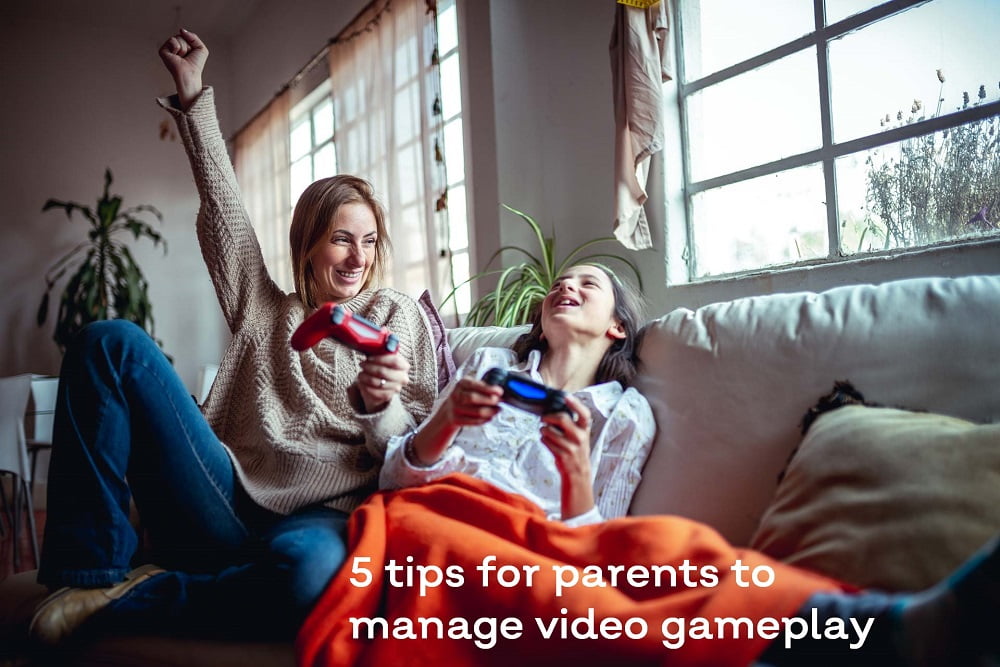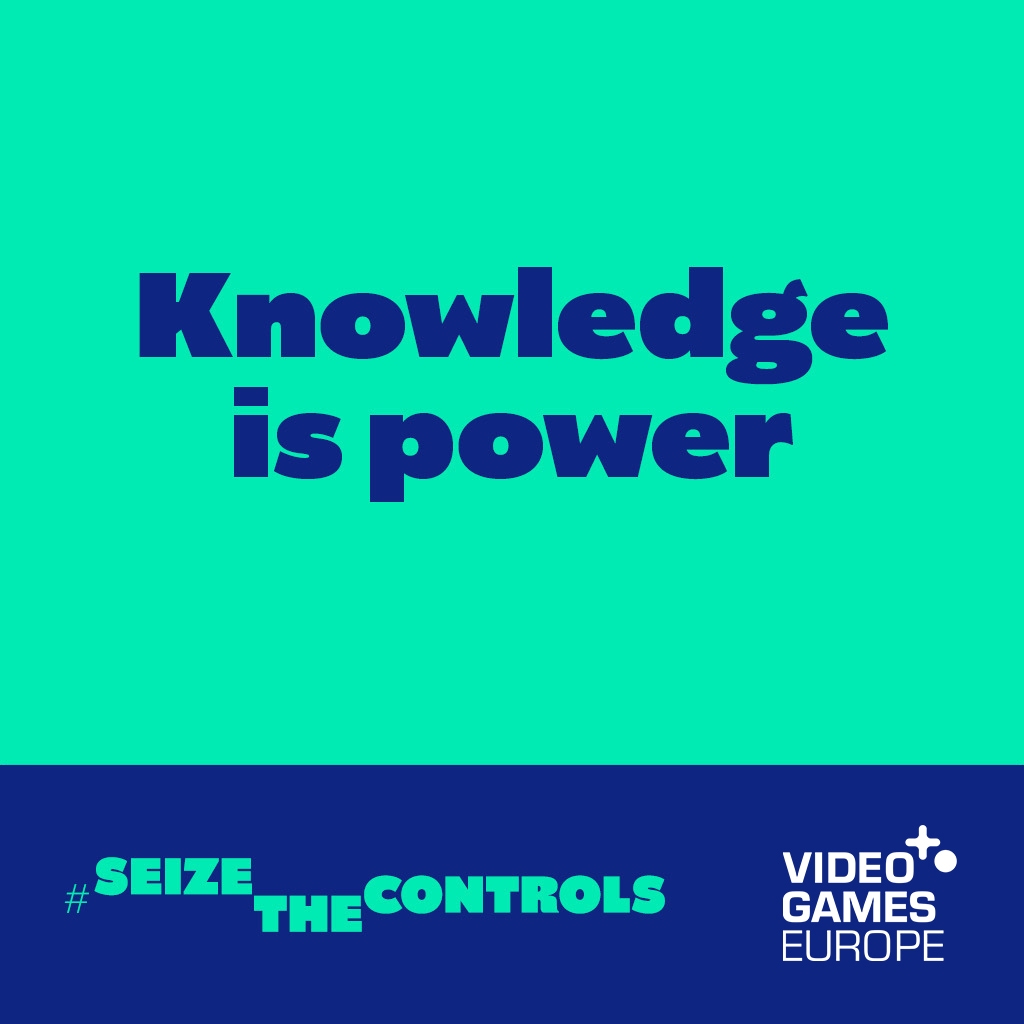A Better Internet for Kids: how Europe’s video games industry will use its decades of experience to help
In Brussels and in national governments around Europe, regulators are focused on making online spaces a safe place to be. Notably, there is a focus on keeping children safe online, especially in places like on social media where harms are most likely to be seen.
Children’s online safety has long been a priority for Europe’s video games industry. In 2023, it will be 20 years since the introduction of PEGI, the sector’s self-and co-regulatory age rating system, which helps parents and guardians make informed decisions about what games children should access, thereby helping ensure a safe and fun experience for all.
The European Commission will release its updated Better Internet for Kids strategy shortly and we are eager to share our vision for the digital space and our knowledge of online safety gained over 20 years of experience and investment.
In 2013, platforms such as Snapchat and TikTok did not exist. New digital players only began providing parental control tools in 2017, whereas video game console manufacturers released their first parental control tools back in 2003, establishing the video games industry as a front runner in minor protection.
PEGI and its Code of Conduct
In 2003, in response to a call from the Council of the European Union for a harmonised age rating system, the industry created PEGI (Pan European Game Information) – a hugely successful and best-in-class co-regulatory system to inform consumers and create guidelines for the industry. Today, 38 countries in Europe use the PEGI system.
The PEGI system is more than just the visual label displaying the appropriate age for a specific game ranging from PEGI 3 to PEGI 18. The PEGI backbone is its Code of Conduct, a set of rules to which every publisher that uses the PEGI system agrees contractually. The Code addresses age labelling, promotion and marketing, independent consumer redress, and safe online gameplay. Since 2007, the PEGI Code of Conduct has included DSA-like provisions, aimed at keeping user-generated content free of anything that is illegal, offensive, racist, degrading, corrupting, threatening, obscene or that may permanently affect minors’ development. Since 2007, our members have introduced a variety of tools and safeguards to protect children from accidentally accessing harmful or illegal content. These measures include age gating, reporting tools, filtering software, moderation and muting tools. In addition to these features, parental control tools allow communication with other players in the game via the likes of voice and video calls to be restricted, helping to make sure children aren’t exposed to inappropriate content introduced by other players.
This combination of tools, along with the Code of Conduct, are just two examples of the video games industry’s ongoing commitment to ensuring that online gameplay environments are safe for everyone.
“Since PEGI’s founding in 2003, children and parents have increasingly been navigating a digital world. We are honoured to be recognised as a successful effort that other industries can learn from in the Better Internet for Kids strategy. We will continue to evolve and provide parents with the tools they need to ensure that video games are a safe and positive experience for all.” Beate Våje, Chair, PEGI Council.
Empowering parents and players with ever-evolving tools and safeguards
Our industry has long followed a safety-by-design approach that places responsible gameplay at the heart of video game development. Over the last 20 years, we have made ever-evolving improvements in our parental control tools, which are integrated into both hardware and software. We can proudly state that our sector is regarded as a pioneer in online minor protection.
From choosing an age-appropriate game, to blocking or setting limits on spend, screen time and in-game communication, we offer these tools:
- PEGI, used in more than 38 countries;
- Parents and guardians can use parental control options accessible on all devices to block or set limits on spend, play time, online interaction with others, and access to age-appropriate video games;
- National education campaigns in local languages to ensure the information is widely and easily accessible;
- Reporting features for in-game communication so inappropriate or harmful behaviour can be reported.
Evaluating our efforts
We provide the tools, we educate, and we actively look to see if our efforts are working. In a recent Video Games Europe-commissioned Ipsos MORI survey on the use of reporting features in in-game communication, we were pleased to see that there is indeed a high-level of parental satisfaction with in-game reporting tools (86%).
According to the survey, most children (59%) do not play multiplayer video games and therefore, do not engage in in-game communication. 79% of parents of children who use online communication features supervise them and have agreements with their child in place around their gameplay.
Parents must, of course, decide for themselves what works for their family, but we are committed to keeping them informed about the tools available to them. We want everyone to have fun with video games, to feel secure and supported when creating, learning, playing, and having a good time.
Educating and informing parents and guardians
Late last year, Video Games Europe launched its #SeizeTheControls campaign, which is about educating parents and guardians, and encouraging dialogue between them and their children so they can make decisions about their child’s gameplay and help their child become a responsible digital citizen. With a raft of protections and safeguarding features available, we appreciate that simply making them available isn’t enough, and we must do our utmost to make sure everyone (especially parents and guardians) knows about them and feels confident about using them.
Games, platforms, and society constantly evolve. We, as an industry, will continue to evolve as well – using our many years of experience protecting minors to continue setting the bar high, helping young people in Europe to become responsible, informed digital citizens, and working towards a better internet for children. We know that we cannot succeed on our own in our mission to reach every parent, guardian and teacher and, as our digital society is evolving further, we call upon schools, institutions, associations, media and other industry partners to
Join us on our mission to encourage others to #SeizeTheControls




